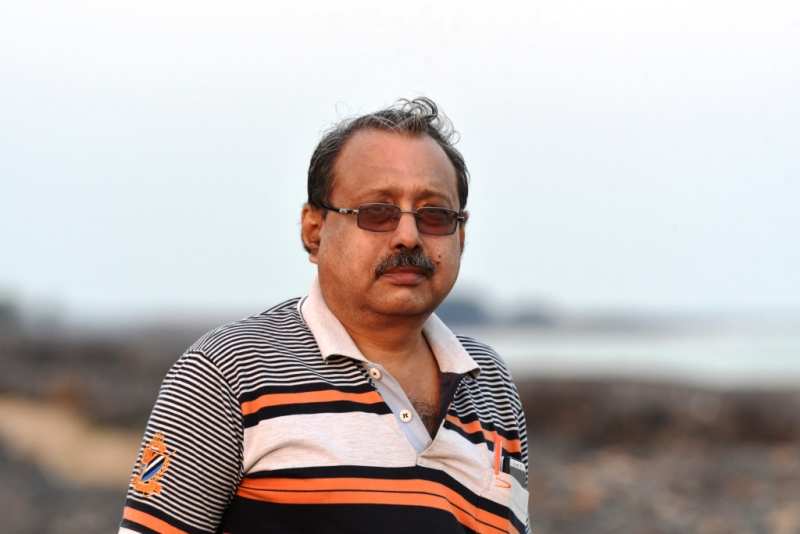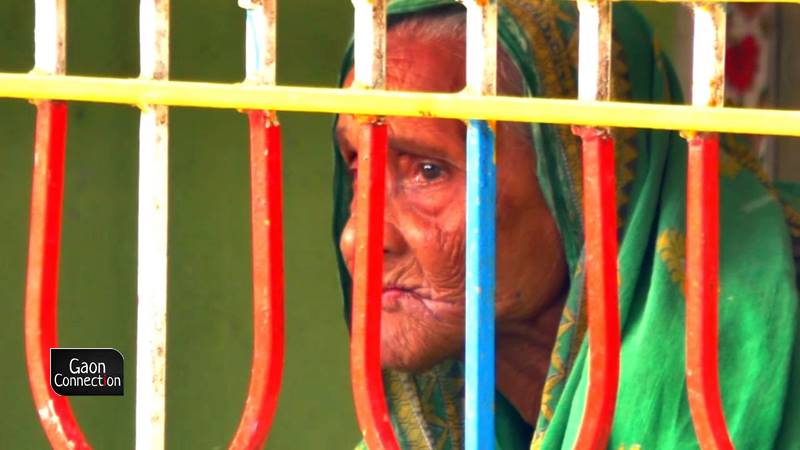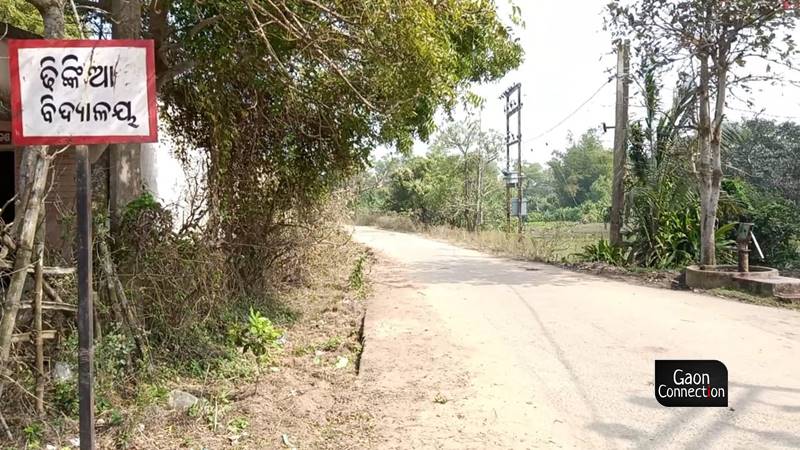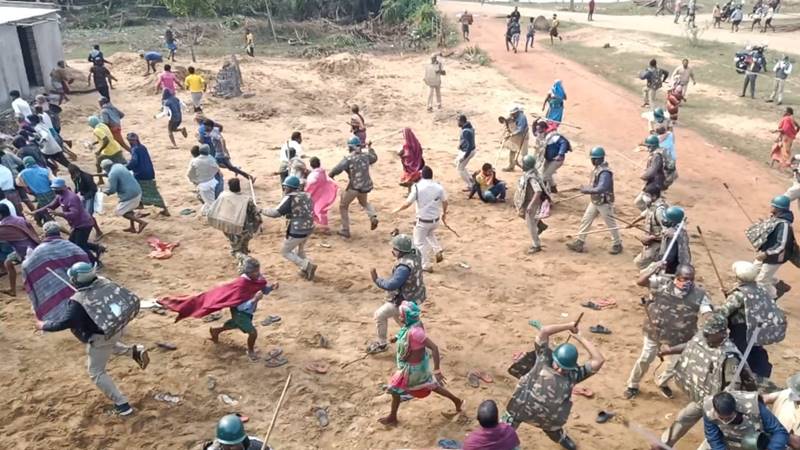Jagatsinghpur, Odisha: Men escape the village fearing arrest; the fight is far from over, say women
Activists demand judicial enquiry into the ‘police atrocities’ on January 14 when villagers protesting against the proposed steel plant in Dhinkia were baton charged. Meanwhile, police are trying to nab the villagers who clashed with the officials. JSW, the steel plant giant, has promised development and employment in the region.


According to the village inhabitants, a number of villagers were injured and were in need of medical care. Photos by Ashis Senapati
All that’s left behind four days after police action on villagers protesting against a proposed steel plant in Dhinkia village is a quiet cluster of huts whose eerie silence is broken only by bleating goats and the roosters’ cluck. Fearing arrest, the men from this coastal village in Odisha’s Jagatsinghpur all run away leaving behind the women and the elderly.
On January 14, Dhinkia village was in the eye of the storm when over 500 villagers had gathered there to protest against a steel plant on their farmlands. In the baton charge that was carried out by the police to disperse the crowd, as many as 40 people had sustained injuries with almost half of them being women and children.
With men missing from the village, feelings of insecurity and tension looms large. But the villagers are still adamant about not letting the steel plant come up on their betel vines and paddy fields.

“We don’t want a big steel plant over our fertile land. All the villagers are determined to protect their land, paan (betel) farms, fish ponds and water-bodies. Our hearts are still burning with anger and anguish. The fight is far from over,” Kanakalata Swain, a 43-year-old woman, told Gaon Connection from within the threshold of her hut.
A few metres away from her house, a 72-year–old frail looking villager, who didn’t wish to be quoted, alleged that the police had illegally arrested some villagers including the village leader Debendra Swain to weaken their fight against the proposed construction of a steel plant of JSW company.
“But we are determined to fight the steel company and the police,” he said.
Meanwhile, Nimai Charana Sethi, the Additional Superintendent of Police in Paradip told Gaon Connection that so far six individuals have been arrested following the clash with the police and efforts were underway to nab other villagers accused of clashing with the police authorities.
“Many villagers are supporting the proposed steel plant and ready to give their land in lieu of proper compensation. But some persons with an ulterior motive have been fomenting trouble in these areas,” the official told Gaon Connection.

Also Read: Tribal communities in Odisha’s Koraput protest bauxite mining to save their Mali hill
Judicial inquiry demanded
Prafulla Samantray, the president of a social organisation called Lol Shakti Abhijan, told Gaon Connection that the police action on the protesting villagers who were denied access to their plantations on January 14 has been under-reported.
“We demand a judicial inquiry into the police atrocities that were perpetrated on that day. Not even women and children were spared. The incident needs to be investigated thoroughly,” he said.
According to the village inhabitants, a number of villagers were injured and were in need of medical care. Twenty-three-year-old betel farmer Raja Mallick’s leg has been fractured and is amongst the seriously injured patients.
“He was writhing in pain for around three hours after police left him unattended on the ground. We shifted Raja to a hospital at Cuttack on 14 January night,” 45-year-old Mahendra Mallick told Gaon Connection.
Ram Mallick, Krutibas Barik, Prafulla Mallick, Alok Bhoi, Sridhar Sethi, Bishnu Das, Santi Das, Arati Dalai, Rajesh Mallick, Dilip Kandi, Lalita Sethi, Dhuna Kandi, Kanha Sahoo, Gouranga Barik, Vivekananda Swain, Sambhu Mandal , Pradipta Samantray, Prasant Samal and many others in the village suffered serious injuries, Prasant Paikray, spokesperson of Jindal Pratirodh Sangram Samiti, which works for the advocacy of the villagers, told Gaon Connection. “They need immediate medical help. But it is not possible for them to visit the nearby hospitals at Paradip and Kujang as police barricaded all the entry points of the Dhinkia,” said Paikray.

Forceful land acquisition, claim villagers
“The state government has no right to hand over the 2,900 acres (1173.58 hectares) of land to JSW Steel Limited as the government acquired had earlier acquired the land for the steel plant of the South Korean steel giant POSCO and that company abandoned the land six years ago due to strong resistance of the villagers against project,” said Samantray. “Now they have again brought up another company to take over the land. Why this repeated onslaught on the lives of the poor villagers,” he added.
Samantray went on to inform that as per the Right to Fair Compensation and Transparency in Land Acquisition, Rehabilitation and Resettlement Act (LARR) of 2013, land acquired and possession taken over but not utilised within a period of five years from the date of possession shall in all cases revert back to the original land owner.
Villagers have been demanding their land back. Peeping out of her window, 68-year-old Kalpana Behera, another resident of the village, asked, “How will the industry benefit me and my family? We will have to leave the area!”

Development and employment, says JSW
“A total of Rs 196 crores has been earmarked for periphery development in the project areas. We will soon get environment clearance for this project. A thousand local youth of Dhinkia, Nuagaon and Gadakujang areas have already been engaged in different JSW projects in Vijayanagar, Dolvi, Jharsuguda and other areas,” he added.
The JSW official informed that the company will ‘shortly’ deploy a reputed agency to assess the skill gap in the area and accordingly plan batch wise skill training in collaboration with the state government.
He also added that the company will work towards improving the medical and education infrastructure for the villagers in the area once the plant is set up.

